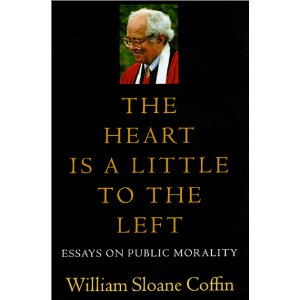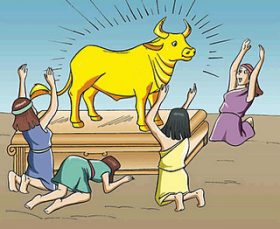Studs Terkel, an American original, devoted the last of his great reportage to the people throughout history “who had hope,” as he explained in a 2003 interview. “They did stuff they shouldn’t have done. They discommoded themselves. They could have led nice lives.” Terkel paid tribute to those people—who are called “activists”—in his final oral-history book published that year, Hope Dies Last: Keeping Faith in Troubled Times.
This was a prolific year for activists. With a bow toward the Arab Spring and Occupy Wall Street, Time magazine styled them collectively as the “Protestor,” who was anointed Person of the Year.
What’s an activist? “Someone who does an act,” Terkel, who died in 2008, said in the interview conducted by Missy Daniel for PBS’s Religion and Ethics Newsweekly (it was carried also in The Life of Meaning: Reflections on Faith, Doubt, and Repairing the World). “In a democratic society, you’re supposed to be an activist; that is, you participate.”
Of course someone could act in a way that energizes people for the greater good or just polarizes them. An activist could defend the privileges of the already privileged or speak up for those on the margins of society. Activism could mean standing exclusively with people who look and think like you, or venturing onto different turf.
In my mind, the most creative and meaningful activism today is taking place below the social radar, in the spirited locales of faith-based community organizing. Tom Roberts, my friend and former editor at Religion News Service, occupied some of that space as a reporter while producing his insightful and indispensable book The Emerging Catholic Church: A Community’s Search for Itself, issued this past fall by Orbis. The book is primarily about the new forms of this hierarchical faith that are emerging from below, from the parishes and communities where Roberts did his remarkable reporting. On that ground he frequently crossed paths with social justice activists and followed some down their own trails.
Roberts on the Emerging Activist
In a chapter titled “Travels on the Margins,” Roberts, who is editor-at-large of the National Catholic Reporter, profiled activists such as Sarah Nolan. In her case, it was the Society of Jesus that constructed a road to social agitation. She discovered justice issues as a student at the University of San Francisco, a Jesuit institution; after graduating she drew further links between faith and activism while helping women in El Salvador organize soy cooperatives in 2001-2002, as part of a Jesuit program. From there Nolan returned to her home in southern New Mexico and formed a regional affiliate of PICO (which stands for People Improving Communities Through Organizing), a nationwide interfaith network of congregation-based community organizations.
Now married with a small child, Nolan helps people in the region make common cause with uncommon allies—liberal Catholics with conservative evangelicals, Anglos with Latinos and African Americans, and so forth. The causes include poverty, homelessness, and—in one of the dicier tasks of solidarity—immigration.
Roberts writes:
And then there is the occasional surprise, like the rabbi at the local reform synagogue who said his biggest concern was the need to work on immigration, even though his congregation is mostly retired, white, and not from New Mexico. The rabbi explained by recalling Jewish history and its multiple exoduses. He said he viewed the immigration centers as “modern-day concentration camps.” His problem was that he didn’t know any immigrants, and that’s where Nolan came in. “There’s this desire to be in relationship with people who are directly affected by the problem so that they can not only get to know people who are going through this problem, but so they can also have a path for their theology “ [Nolan said] and apply it to the realities that people are going through.
It’s hard to tell just how many faith-based community activists are out there, because nobody seems to be counting. But PICO alone claims more than 1,000 member institutions (churches, predominantly) that, in turn, have one million members in 150 cities and 17 states.
Activists like Nolan are helping low-income people assert their legitimate rights to minimum social goods such as healthcare and housing. At the same time they’re enlarging the tent by including others, such as affluent members of congregations. They’re able to do so because all these faith traditions have theologies that demand concern for the weak and vulnerable, and because, as Terkel insisted, “Hope dies last.” …read more







